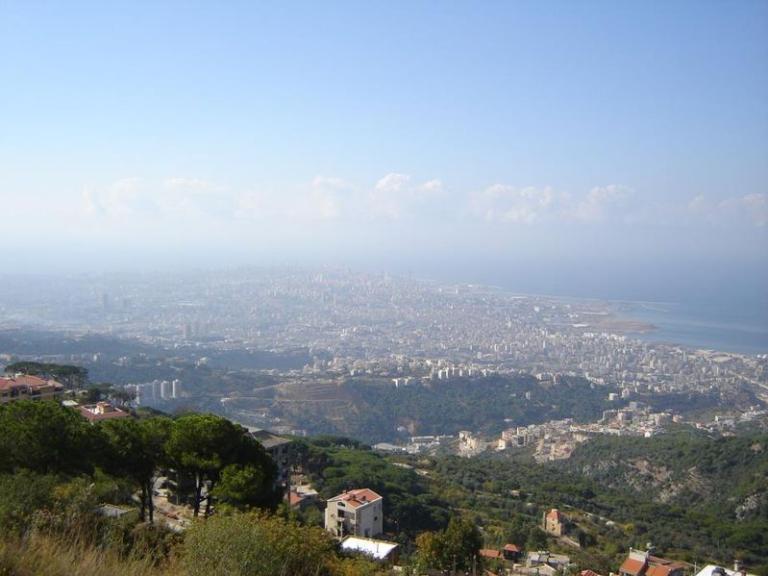
A passage from The Book about the country that lies directly north of where I’m currently writing:
Because of its mountains and its banks, but perhaps especially because it is a mosaic of different religions and cultures that lived harmoniously together, Lebanon was once known as the Switzerland of the Middle East. It was a symbol of the hope that the various communities of the region could someday learn to live together, peacefully and productively, in other places as well. The collapse of that dream has been painful for many in the Middle East.
Much of what characterizes the area called the “Levant”—a collective name sometimes given to the countries of the eastern Mediterranean—comes from its merchant orientation. Trade ties served, as such ties often do, to open them to new ideas, to make them more tolerant of differences. (This is the tolerance of the free market. After all, nothing should get in the way of a successful deal.) Missionaries, merchants, and diplomats came to the Levant in large numbers during the nineteenth century, bringing with them Western ideas and modes of life, which the intelligent and adaptable merchant class of the region rapidly assimilated. However, various nationalist movements came to power in the region after the close of World War I and the disappearance of the Ottoman Empire. In the same nationalist surge that fed both Palestinian aspirations and the Zionists, the old tolerance and multiculturalism of the Levant disappeared in most of the cities of the area. Minorities were not favored, and they were an affront to the nationalist spirit. It is out of this situation that the famous Turkish massacre of the Armenians ensued. And in the Arab world, cosmopolitan places such as Alexandria were changed forever. The exotic city of Lawrence Durrell’s Alexandria Quartet, the fascinating Alexandria of the marvelous Greek poet Constantine Cavafy, is now a rather drab, uninteresting, and somewhat dilapidated Arab port. The old Greek tavernas are gone, even if their Greek-lettered signs often remain—and inside there is only the usual dull fare of lower-class Egyptian cuisine.
But Beirut remained. Beirut lived on, at least among the upper classes, as an embodiment of the Levantine ideal. Neither the Muslims nor the Christians were strong enough to impose conformity on Lebanon, and they had to cooperate, to a certain extent, in making the place work commercially. Like Hong Kong, it had very few natural resources and had to rely on trade to survive. And, like Hong Kong, it was a kind of island or peninsula, backed up by a vast hinterland in which far less cosmopolitan and far less sophisticated ways were the rule. But those ways were not as foreign to Lebanon as might have appeared to a casual observer. Anyone looking very deeply might have realized that the hinterland was the real Lebanon. Beirut was an aberration, an exception. One of the revelations that came out of the collapse of Beirut and Lebanon was how superficial the Westernization of the country had been. In the countryside and among the lower classes in the cities, hardly a trace of the Levantine spirit seems to have found a permanent place.[1] Like the appearance of parliamentary democracy, the appearance of harmony and Westernization was a mirage.
[1] This is very much like the situation of ancient Egypt. Alexandria may have been Hellenized, but in the countryside the old language and the old ways persisted. This was true even after the coming of Christianity: In Alexandria, Clement and Origen argued and wrote in Greek; in the hinterlands, as the Gnostic library of Nag Hammadi shows, Coptic—a late form of ancient Egyptian—was the language of Christianity.
Posted from Jericho, Palestine











